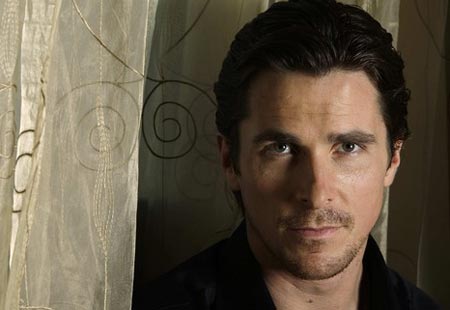Batman's new role in China
 |
As Hollywood's Christian Bale flew from Gotham City to China's ancient capital Nanjing, the Batman-turned priest, who is about to witness a massacre in World War II, also brought up a new perspective for Chinese and American filmmakers.
Bale, having been awarded a new Golden Globe trophy for his supporting role in the boxing drama "The Fighter," joined renowned Chinese director Zhang Yimou last month for Zhang's latest feature project, "The 13 Women of Nanjing."
While Zhang admired Bale for his versatility and hardworking spirit, producer Zhang Weiping expects the film, with Bale's global influence, to enter more countries' film markets and make an unprecedented amount of money.
"It's safe to say more Chinese filmmakers would like to have starring actors who are Hollywood big names or shoot their projects in cooperation with American crews," said You Fei, professor with the School of Cinema and Television of the Communication University of China.
Regarding both concept and technology, the booming yet green Chinese film industry has long been an apprentice of Hollywood.
"From computer animation to special visual and audio effects, more and more Chinese high-budget films have used Hollywood technology in the past decade," You said.
He cited director Feng Xiaogang's 2010 blockbuster "Aftershock", which hired a special visual effect team from the Republic of Korea (ROK) to recreate the devastating 8 minutes of the 1976 earthquake in Tangshan, a city of north China's Hebei Province.
You revealed that Feng did not hire a Hollywood team due to budget concerns, but the technology used by the ROK team was mainly from Hollywood.
The marketing mode in China's film industry was also largely copied from the U.S.
Few Chinese filmmakers thought about marketing their works decades ago when making films was still a governmental operation, but now, according to You, most filmmakers spend at least one-third of a film's funding in promotion, a typical Hollywood practice that effectively boosts box office receipts.
Last year, China's box office reached a record 10.17 billion yuan (1.52 billion dollars), a year-on-year rise of 63.9 percent. And "Aftershock" alone contributed 673 million yuan.
But it is not a one-sided arrangement.
While the Chinese film industry has been busy learning from the other side of the Pacific, Hollywood also turns to this 5,000-year-old country for exotic inspirations.
"The oriental cultural traditions have been providing fresh material for Hollywood film languages. Consequently, more American people are getting to know Chinese culture," You said.
With pandas, bamboo, martial arts and many more typical Chinese traits, the Hollywood animated feature film "Kung Fu Panda" swept the world with a box office of 500 million dollars two years ago. Its sequel is already set for release in both China and the U.S. in May.
Also, Martin Scorsese's Oscar-winning "The Departed," starring Leonardo DiCaprio, was based on the 2002 Hong Kong film "Infernal Affairs".
However, experts say the interaction between the two countries' film industries remains "at a relatively superficial level," and more efforts were needed for deeper cooperation in a bid to achieve a win-win results.
"In order to attract the huge Chinese market and reduce costs, more American film groups will choose to cooperate with Chinese actors or shoot in China," You said, adding that Hollywood production companies were also eyeing opportunities to invest in Chinese films.
Meanwhile, Chinese films were also looking for a share in the American market.
Gao Jun, vice general manager of New Film Association, a major cinema chain in the Chinese mainland, pointed out that very few Chinese films can be viewed in American mainstream cinemas, while Hollywood blockbusters gained fully in China.
In 2010, "Avatar" and "Inception" earned the lion's share of the box office in China, raking in 1.8 billion yuan.
"Surely, the two countries are very different in terms of cultural and social backgrounds, and many Chinese films don't meet U.S. standards. But still, some of them have great commercial potential," Gao said.
In December last year, a China-made animated feature film called "The Dreams of Jinsha" marked its commercial screening debut in the United States.
The Laemmle Theatres in Los Angeles had arranged five screenings for the film every day during its prime time from 12:30 p.m. to 8:50 p.m.
Gao expects American cinemas to make more room for quality Chinese films.
As for the much-anticipated "The 13 Women of Nanjing," professor You Fei believed the cooperation between Zhang Yimou and Christian Bale indicated a stronger tie between the film industries of China and the United States.
"The future cooperation between the two sides is very promising," You said.






















